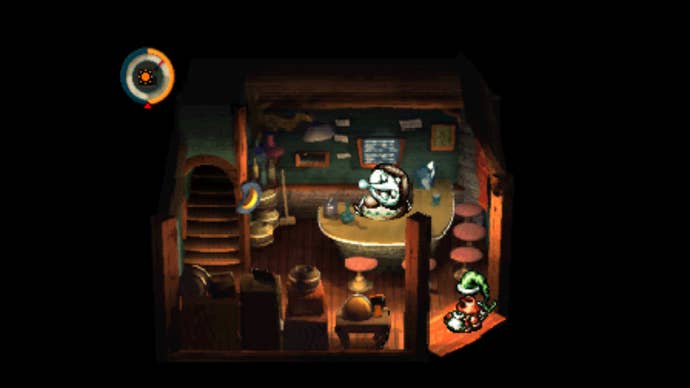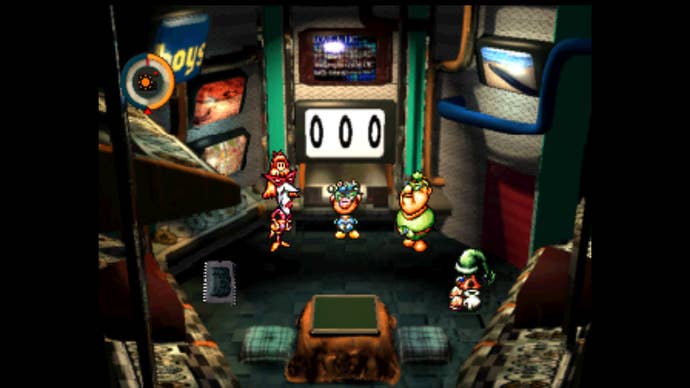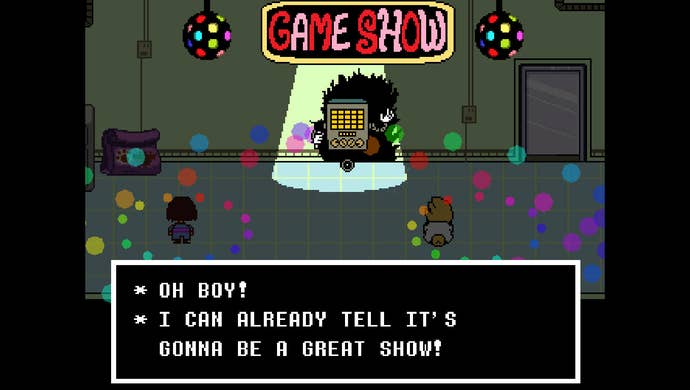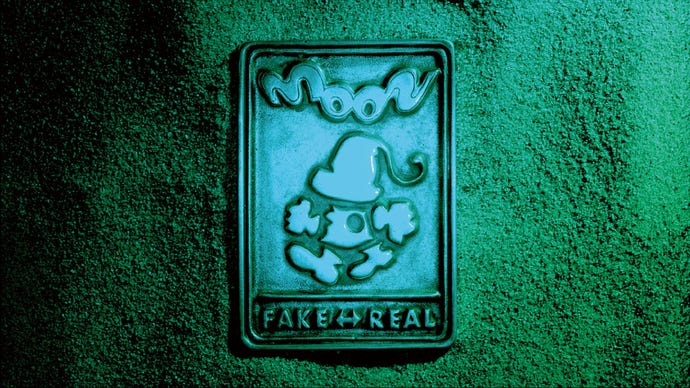The Story of Moon, the "Anti-RPG" That Inspired Undertale
You probably haven't played Moon, but it should feel familiar regardless.
This article first appeared on USgamer, a partner publication of VG247. Some content, such as this article, has been migrated to VG247 for posterity after USgamer's closure - but it has not been edited or further vetted by the VG247 team.
RPG fans are currently abuzz about a game on the Nintendo Switch called "Moon." At first glance, it looks like a charming adventure from the 32-bit era, but nothing that that should really stand out in an era that's brimming with whimsical retro-style RPGs.
Moon isn't a simple tribute to the golden age of RPGs, though. It is a game from that era, and it's only received an English localization very recently. But there are more reasons why we're excited to finally play this unique, influential RPG. Here's a small primer that outlines why Moon is special.
What is Moon?
Moon is a "remix RPG adventure" that was released on the PlayStation in 1997. You play as a young boy who is sucked into a video game world that's in danger thanks to a malevolent dragon.

Moon is unusual in that you're not equipped with a sword and sent out to slay monsters, as per most RPGs. Instead, you witness the events of the game as a semi-invisible bystander. The world of Moon is under the protection of a "Hero" who slays monsters indiscriminately and loots NPCs's homes as he progresses in his journey to save the stricken realm.
Moon tasks you with saving the souls of the monsters that suffer under the Hero's sword. You're also called on to bond with the NPCs, each of whom has their own quirks, interests, and personalities. There are several different endings to achieve.
Moon received its first official translation and Western release on the Nintendo Switch in August 2020.
Why is Moon a special RPG?
Moon was programmed by Love-de-Lic, a studio that formed from Squaresoft alumni in 1995. Its founder, Kenichi Nishi, worked on 1995's Chrono Trigger as a field planner, and 1996's Super Mario RPG as a map data coordinator. An English-language release of Moon was planned and even advertised, but plans fell through. As a consequence, Moon has retained an air of mystery in the West for decades. Its original concept has kept it fresh in RPG fans's minds all this time to the point that it's been a major inspiration for some modern RPGs.

Moon's tagline on the Nintendo eShop is, "Don't be a hero. Experience the love. Experience Moon," which reflects your unusual role in the game. You trail behind the silent, armored hero and collect the souls of the monsters he slaughters. By collecting these souls, you earn "Love"—a force that powers you up, even though you don't fight. Powering up is important because even though Moon doesn't expect you to fight, your meagre store of stamina needs to be fortified if you want to wander far from the old lady NPC who takes care of you. If you run out of stamina, you die.
Interacting with NPCs like the aforementioned old lady is another key element of Moon. Moon reflects on the sterile role of villagers and townspeople in retro RPGs; they're usually depicted as cut-out characters who stay in one spot and deliver the same lines even when the heroes in said games barge into their rooms, root through their belongings, and pull valuables out of drawers and urns. (Nintendo's most-loved hero, Link, is infamous for grabbing townspeople's pots and smashing them.) By contrast, Moon's NPCs are lovingly designed individuals who are full of life. They have hobbies that you can enjoy alongside them. They even follow schedules that adhere to Moon's day-night cycle.
16-bit RPGs like Chrono Trigger and Final Fantasy 6 are famous for their moving soundtracks. Moon also subverts this expectation by giving you the option to find and build your own soundtrack for your adventure. You collect up to 30 "Moon Discs" as you play. The discs contain songs that span a number of genres, including rock, jazz, electronica, new age, and more. (Notable composers for Moon include Miki Higashino, who wrote music for Suikoden and Suikoden 2, as well as Taro Kudo, who wrote music for Super Castlevania 4.)
If you so choose, you can opt out of listening to music altogether in Moon. Ambient sounds will accompany you instead, like the chirp of birds and the thump of your footsteps. This was a very unusual design choice for a '90s JRPG, though 1995's Western-made Secret of Evermore also favors ambient sounds over full soundtracks.
Moon sounds a lot like Undertale by Toby Fox. Is it a coincidence?
If you've played Toby Fox's tremendously popular 2015 RPG Undertale, Moon might feel very familiar. Both games involve making friends with RPG monsters instead of fighting them (though Undertale gives you the option to do so). Undertale also lets you collect "Love" from monsters, and every NPC is charismatic and unique.
In 2017, Fox confirmed via a Tweet that Moon is indeed one of Undertale's inspirations.
"I want to mention another inspiration for UNDERTALE. It's a game called 'Moon: Remix RPG Adventure.' It's an adventure game where you enter the world of an RPG where a 'Hero' has caused havoc," Fox wrote. "The 'Hero' broke into people's houses and ransacked their cupboards without asking, killed innocent monsters without abandon, and left the world in disarray. Y'know... doing what a normal RPG 'Hero' does."

Fox admits he hasn't played Moon himself, as the game never received an English translation. Even fan translation efforts stalled. But thanks to Onion Games, Fox—and everyone else—can finally play a localized version of Moon. If you're interested, get it on the Nintendo eShop for $18.99 USD.


